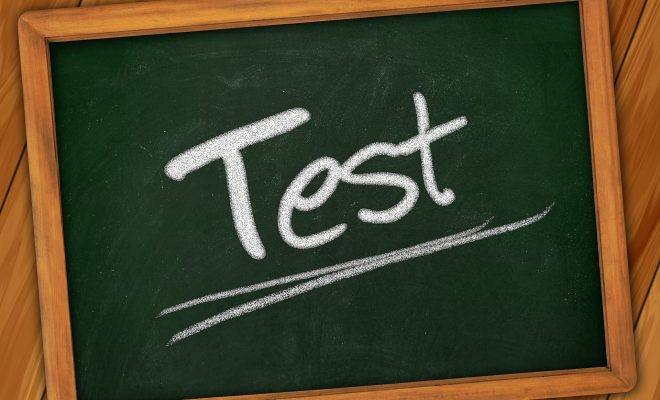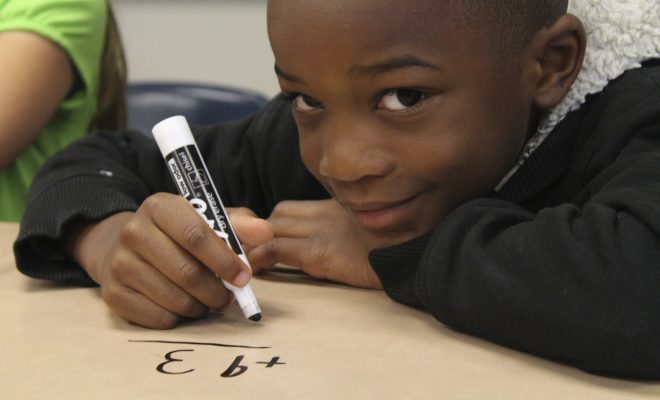Pass or Fail: Standardized Testing and Education Problems in the U.S.

In this multi-part series, I provide a dissection of the phenomenon of retention and social promotion. Also, I describe the many different methods that would improve student instruction in classrooms and eliminate the need for retention and social promotion if combined effectively.
While reading this series, periodically ask yourself this question: Why are educators, parents and the American public complicit in a practice that does demonstrable harm to children and the competitive future of the country?
How much do you think education laws and policies impact our educators? Are students receiving the very best instruction when such a great emphasis is placed on standardized testing?
Supporters of standards-based teaching and learning use standards and standardized tests as a basis for identifying which students have mastered required material and which have not. Promotion or retention, when based on standardized test performance, leaves little room to quibble about whether a child should move to the next grade level. Some educators and policy makers, however, question the logic of basing promotion solely on standardized test performance. And here we see one of the fundamental problems of standard-based teaching – the inevitable adoption of standardization and its associated element, the standardized assessment.
With the passage of the No Child Left Behind (NCLB) act, schools had to make annual yearly progress (AYP) toward federally generated achievement goals in reading and math (both overall, and for students in various socioeconomic, race/ethnicity, language minority, and special education categories). NCLB also mandated that the total student population in a school district must reach proficiency in both subject areas, or, through a “safe harbor provision,” reduce by a rate of 10 percent annually the number of students not reaching proficiency on state exams. All this to achieve progress demanded by 2014. School leaders, teachers, and scholars overwhelmingly perceived these achievement goals as unattainable, and, of course, the deadline has passed, with little evidence of progress.
A great many authorities have spoken out about the problems of the NCLB legislation, and some even tout it “the worst legislation ever passed by Congress.” Complaints emphasized the challenge for teachers to help struggling children met standards when their efforts were overshadowed by the specter of the sanctions to be doled out should schools not reach AYP. Many well-meaning educators working under the guise of accountability for student learning have gone on to evaluate children’s knowledge based on narrow information provided by test scores.
This has made “teaching to the test” a necessary option for many educators under extreme pressures. In short, responsibility for removing social promotion has lost out to a focus on accountability for ensuring that students pass state assessments. Reports also suggest that teachers inevitably waste a lot of instructional time struggling to meet the demands of these assessments. Class time, which might otherwise have served to enrich student learning, is now primarily focused on preparing children for upcoming state assessments.
Some administrators have determined that the use of standardized tests to decide promotion was problematic. The use of standardized tests, in fact, resulted in a narrowing of the curriculum so that there would be alignment between the test administered and the curriculum taught. Students would learn less, but more would be able to reach required scores for promotion. This is, of course, the problem at the heart of the “teaches to the test” conundrum.
Although retained students do tend to perform better on assessments the second time around (although related achievements and academic advancements also tend to be short-lived), schools can often show improved AYP when retained children reach proficiency on state assessments. Correctly or not, most stakeholders deem the improved results in retesting to be sufficient evidence of improvement.
At the end of December 2015, President Obama signed the Every Student Succeeds Act (ESSA) into law, effectively sweeping away NCLB. The new bill made major changes to federal education policy. One thing that changed with the ESSA was how teacher performance is evaluated. States now have the ability to individually appraise how well its teachers are doing performance wise. Another alteration under the new law will allow states “to come up with their own way to determine the quality of their local schools.” This means that test scores are no longer the sole deciding factor for school performance.
ESSA lists music as a component of a well-rounded education and gives it more support than previous policies when it comes to access and funding. The law also means federal grant funding is opened for states and local school districts to support music education programs and further train music teachers. ESSA has been a long time coming. Considering that NCLB had needed an update since 2007, it is shocking how long it took to sign this new law.
As far as the effect that ESSA will have on social promotion and retention, only time will tell. Do you feel that American education has improved since ESSA was passed, or are we still fighting an uphill battle?




